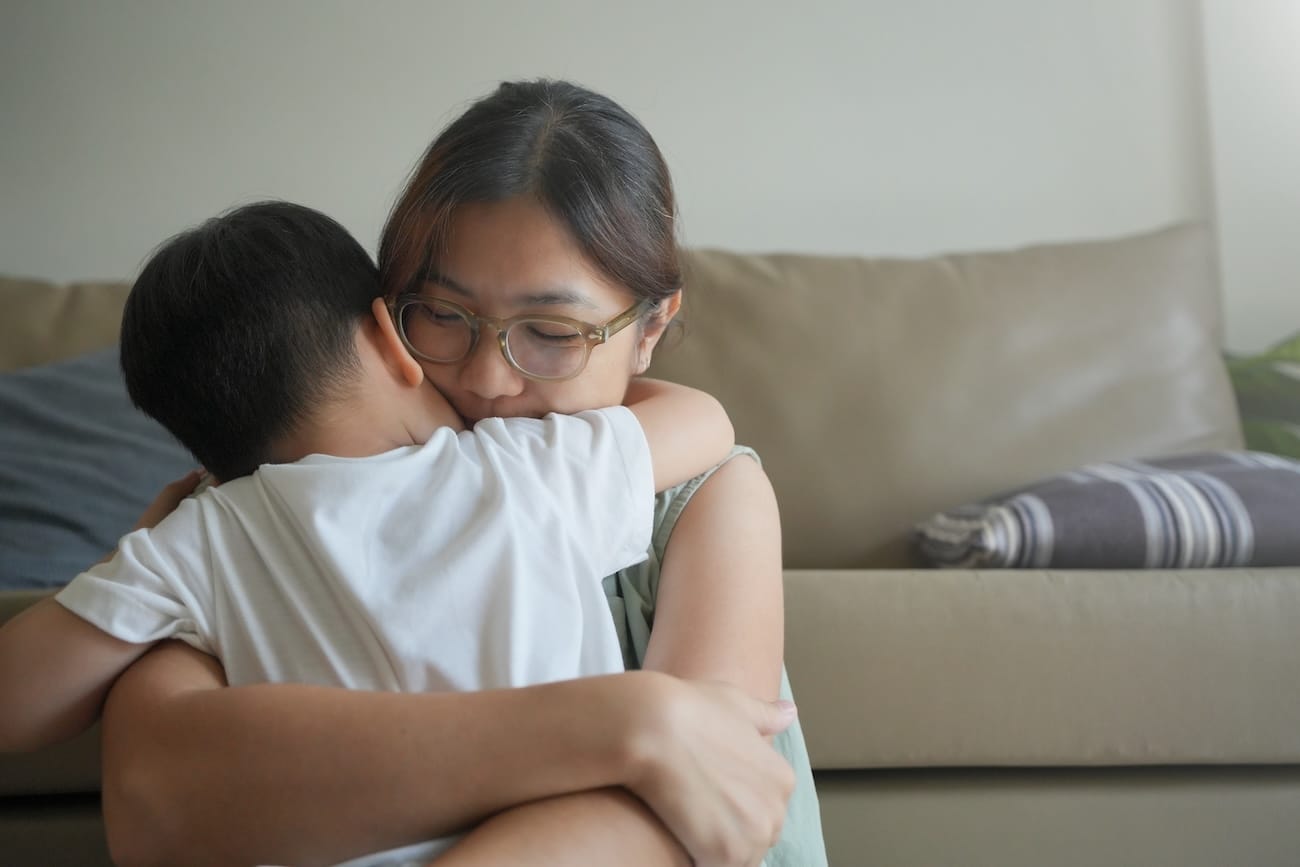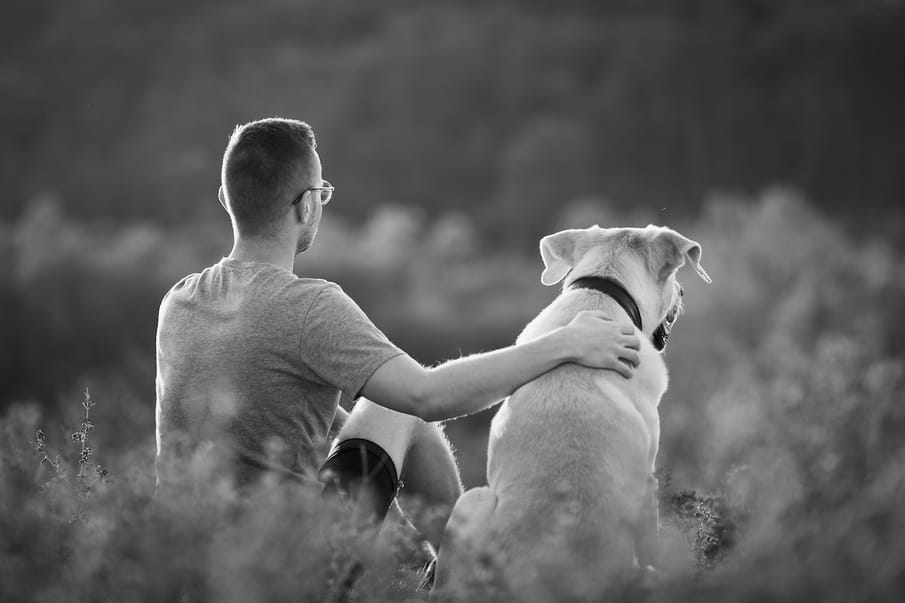The bond between a pet and their owner can be incomparable. Here are nine tips on how you can support a loved one going through pet loss grief
The internet has brought countless wonderful things, but arguably one of the best is the endless stream of heart-warming and hilarious pet videos to peruse at your leisure – and which reaffirm just how beloved pets truly are. Research commissioned by SunTrust Mortgage has revealed that 33% of millennials bought their first home with their dogs in mind, not children. A survey by Manypets reports that 35% of owners have an Instagram account for their dog, and, of course, we can’t forget the heart-wrenching story hitting TikTok, with more than 3.3 million likes, of Max the dog and his memorial step – if you haven’t seen this yet, prepare for tears.
As a nation of animal lovers, we don’t want to think about being without our pets, but there lies the issue: as a society, we’re unequipped to understand pet loss grief. These animals aren’t merely cohabitants, they offer companionship during life’s most challenging times, and comfort, familiarity, and routine when we need it most. A study by Cats Protection and the Mental Health Foundation found that 87% of participants felt owning a cat had a positive impact on their wellbeing, with 76% believing they were better able to cope with life thanks to their pet.
And this isn’t just anecdotal. Numerous studies have investigated the powerful effects of pet ownership, including reducing blood pressure and risk of cardiovascular disease thanks to the increase in physical exercise, such as with dog walking. One 2024 study, published in JAMA Network Open, actually concluded that “strong bonds with pets, especially dogs, may alleviate anxiety and depression, aiding mental health interventions, particularly for vulnerable groups”.
The impact on our lives is undeniable, and yet, it’s also very evident that pet loss grief often goes overlooked and unsupported. So, when someone you care about is going through this dreaded time and navigating pet loss grief, here are nine tips on how you can show up to support and validate them, recognising the magnitude and heart-breaking nature of this loss.

Don’t insinuate timelines
As with any other form of grief, it’s important to recognise that the individual needs to process their emotions at their own pace. The most sensitive thing you can do in these circumstances is respect the loss as you would any other – don’t expect the griever to ‘get over it’ quicker than the loss of a person. In most cases, they will truly have shared a bond with their pet, and have potentially spent more quality time with them than even friends or family members, which can make it incredibly hard to come to terms with. It’s not just the loss itself, but a complete life upheaval, impacting their entire routine and home life. Grief is an ebb and flow process, with no rules on how long they should feel a particular way.
Be mindful of language
When talking to the griever, steer away from using ‘dog’ or ‘bird’ as it can feel impersonal, and instead aim to use the pet’s name by saying, ‘I’m so very sorry you lost Fluffy,’ or ‘Bilbo was such a wonderful soul.’
Even if you aren’t an animal person yourself, you can still empathise with their situation and feelings, so avoid downplaying it with phrases like ‘It was just a dog/cat’ – for most people they never were ‘just a’ anything. Another thing to be cautious around is suggesting getting another pet before the griever has processed their grief. While this can come from a place of good intentions, the griever won’t be emotionally available to connect openly with their new pet, or train them, etc., and this may compound the difficult feelings by adding guilt into the mix if they worry they’ve ‘replaced’ their pet too soon. There is no right time for this, so allow them to make this decision on their own.
Ask to hear the stories
The bond between us and our cherished pets is lifelong, and it can be the memories that remind us of the unconditional love we received, and our gratitude for it. Allow the griever to share stories, and if they haven’t yet, you could prompt the option by asking if they are up to telling you about a special moment with their pet. Thank the griever for sharing these memories too, as this will help them continue to speak up when they are feeling up to it.

Listen without suggesting solutions
Most of the time, especially when dealing with pet loss grief, people just want to be able to talk to someone; they don’t expect you to do anything but listen. Give the griever the space to talk openly, and let them know you’re there to simply be a sounding board.
Witness without judgement
In the same vein, the griever doesn’t want judgement on how they are coping, or how long they are at a particular point in their grief journey. Sometimes the nature of the loss can be incredibly painful – whether it was a surprise, accident, or a long-term illness. Euthanasia is, unfortunately, a common way we lose our pets, and it’s the hardest decision to make that comes with a lot of guilt. The griever is probably already judging themselves, thinking back over every decision they’ve made, and so rather than dissecting this or giving your opinion, focus on simply offering your support.
Be honest, and ask questions
We very often feel awkward and embarrassed if we don’t know how to handle situations, and grief is no different. If you’re unsure how to approach the griever, that’s OK. Be compassionate but honest, and don’t be afraid to ask questions. An example might be: “I know you’re hurting and I want to help, but I’m not experienced with this. How can I best support you right now?” One question I like to ask is “Sword or blanket today?” Basically meaning, do you want support or comfort?
Support for children
A pet loss is sometimes a child’s first experience of grief, and realising that death is a part of life. While it can be tempting to shield them from this, it’s best to avoid telling a child that their adored pet ran away or went to a farm, as this instils a sense of not being good enough for the pet. Instead, try to be compassionately honest, tell them the pet loved them and didn’t want to go either, and that they will always be near. Encourage them to talk about their pet, and ask questions if needed to help them process this.

Encourage rituals or memorials
Something that can be really beneficial during this time, is encouraging the griever to do something special to remember their beloved pet. There are many different and beautiful ways we can celebrate the life of our pets, from planting a tree in their honour to getting a personalised vase, scattering their ashes in their favourite place, or making a collage of memories. One I recommend is decorating a wooden box, and giving them a space to share memories, thoughts, and stories of and with their pet. The griever can write down anything they need to get out, and place it in the box, including trinkets and photos. Participating in these sort of moments, or suggesting them, will often be really appreciated by the griever.
Check in every once in a while
After the initial weeks, many people forget the griever is still on a grief journey. Every so often, send a message or ask in person how they are coping, and remind them that they are loved and supported. Much like with losing people we care about, special events (such as their birthday, the anniversary of their death, or places you visited together) can be particularly painful. Keeping this in mind and checking in around these times can be another kind and compassionate way to show you care.
Grief over pets can be as painful and difficult to navigate as that of a person; it’s a long, uncomfortable road, and any ounce of compassion, and empathy will go a long way. If you are, or know someone, going through this, support is out there, and it’s not ‘silly’ to ask for help.


Comments